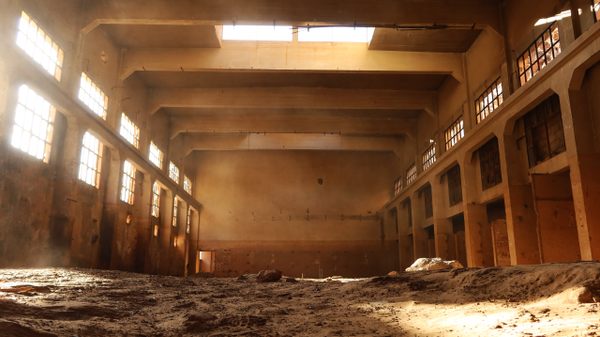Nestled in central Morocco’s rugged landscapes, the Ahouli Mines have a rich history as a hub of mineral production. The French company Penarroya initiated the mining operations in 1927. From 1928 to the 1960s, these mines yielded tens of thousands of tons of lead annually, employing hundreds of workers who extracted resources from dynamite-blasted tunnels—an industrial technique now banned in Morocco.
At about 1.5 kilometers from the entrance, the main tunnel splits into two and narrow shafts dart off in several directions, with ladders and pulleys connecting to shafts at shallower and deeper levels. There are also some larger chambers used for storing disused trolleys, mining tools, and basic amenities for the miners, including a makeshift shower. An ominous red metal door is locked with heavy-duty padlocks. Apparently, the French company used to store dynamite in the room behind this door.
Though large-scale operations ceased decades ago, remnants of its bustling past are still visible, albeit crumbling. A rickety bridge with rail tracks spans the Oued Moulouya river, connecting the main tunnel of the Ahouli Mines to a large processing facility that is completely abandoned. On the same steep slope are a number of stone huts. Most are roofless and half destroyed, while a few are padlocked, suggesting that they are probably used as sheds. A few hundred meters downriver are the deserted workers’ living quarters. This is a large structure that follows the slope of the mountain. Apart from the buildings at the ground level, the rest of the structure is unused.
Today, hundreds of freelance miners work in the tunnels to recover lead, zinc, fluorite, and quartz using rudimentary mining tools. The product of their labor is loaded on stripped-down bicycles. Miners haul up to 100 kilograms of minerals per trip, pushing these bicycles along muddy, uneven terrain. These miners face significant challenges, including physical exhaustion, dangerous working conditions, and a lack of formal oversight, but a lack of alternative sources of income forces them to face these harsh conditions.

